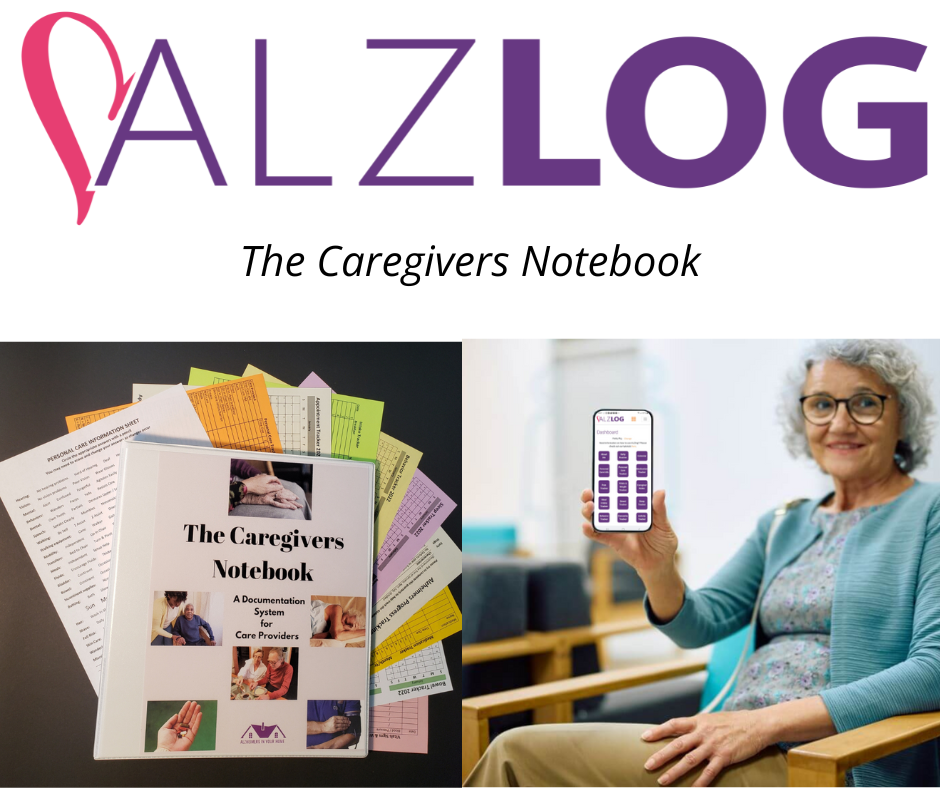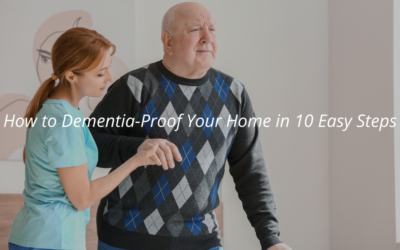If your loved one has both dementia and diabetes, you already know how tricky it is to keep things balanced. Add insulin to the mix — and things can go from concerning to dangerous in a heartbeat.
Managing diabetes takes clear thinking, memory, and routine — all things dementia slowly takes away. And when someone is still living on their own and trying to handle their diabetes care alone, it can become a serious health risk.
Let me tell you about one of the caregivers in my support group who’s going through this right now.

A Real-Life Story: “Mom Forgot to Eat… Again”
One woman in our group shared that her 81-year-old mother still lives alone. She’s insulin-dependent and insists she’s fine. The problem? Her mom often forgets to eat — but still takes her insulin. That means her blood sugar can drop fast, and dangerously low.
Her daughter has tried to help — suggesting medication organizers, setting up meal reminders, and even leaving only small amounts of insulin in the house. But her mom gets angry. She says, “I’ve done this my whole life — I don’t need a babysitter!”
The daughter is scared, exhausted, and constantly waiting for that next emergency call. And sadly, this story isn’t unusual.

Why Dementia Makes Diabetes Harder to Manage
When someone has dementia, it becomes difficult to:
- Remember whether they’ve taken their insulin
- Recognize the signs of low or high blood sugar
- Eat regularly (they may forget or think they already ate)
- Adjust insulin doses based on meals or blood sugar readings
- Communicate clearly when something feels off
Even someone who’s been managing their diabetes for 30 years may suddenly struggle with the steps — and not even realize it.
Signs There’s a Problem
Watch for these warning signs:
- Sudden confusion, dizziness, or fainting
- Skipped meals
- Missed or doubled insulin doses
- Refusal to check blood sugars
- Unexplained falls
- Anger or defensiveness when you bring up their health
These could be signs that their diabetes care is no longer safe to manage on their own.

What Can Families Do?
You’re not being controlling — you’re being protective. When someone has dementia and is trying to manage insulin alone, your involvement can be the difference between safety and a medical emergency. Here are some ways you can step in with love and wisdom:
💡 Step In Gently
Try using soft, respectful language that helps preserve their dignity:
- “I’d love to help with your insulin so you don’t have to worry about it.”
- “Let me take care of this part — you’ve done it long enough.”
- “I’m just double-checking — you’ve done so much, let me give you a break.”
Stay calm and kind, especially if they resist help. Dementia can make the person feel like they’re losing control — your job is to bring reassurance, not correction.
🕒 Create Simple Routines
Routine reduces confusion. Keep everything as predictable as possible:
- Set alarms or reminders for meals, snacks, and medications
- Link insulin to a familiar daily habit (like breakfast with morning TV)
- Use pre-filled insulin pens to reduce dose errors
- Stick to consistent mealtimes — even on weekends or holidays
🧊 Monitor Food Intake Closely
Just because there’s food in the house doesn’t mean it’s being eaten.
- Regularly check the fridge and freezer to see what’s been touched or left untouched
- Watch for expired food, or signs that they’re only eating sweets or snacks
- Use clear containers to make meals more visible and recognizable
- Consider meal prep, meal delivery, or quick-grab items that don’t need much effort
📷 Consider a Kitchen Camera
For loved ones living alone, a discreet kitchen camera can help:
- See if they’re eating meals or skipping them
- Monitor whether they’re taking insulin before food
- Catch potentially dangerous patterns early
- This offers peace of mind without needing to be there 24/7.
Educate Yourself About Hypoglycemia & Hyperglycemia
- Know the early signs of low & high blood sugar — especially when it looks like dementia behavior
- Keep a printed blood sugar action plan posted in the kitchen
- Understand the basics of insulin timing, food balance, and emergency care
- Learn what to do when they refuse food or treatment — have a calm plan in place
- Learn more about hypoglycemia at https://my.clevelandclinic.org/health/diseases/11647-hypoglycemia-low-blood-sugar
Signs of Hypoglycemia (Low Blood Sugar)
Low blood sugar (hypoglycemia) can come on fast and may be mistaken for dementia-related confusion or mood swings. It often happens when someone with dementia forgets to eat but still takes their insulin or other diabetes medication.
Physical Symptoms of Low Blood Sugar:
-
Shakiness or trembling
-
Sweating (cold, clammy skin)
-
Pale appearance
-
Fatigue or sudden weakness
-
Rapid heartbeat
-
Blurred vision
-
Headaches
-
Hunger (especially sudden or strong)
Behavioral and Cognitive Signs:
-
Sudden confusion or appearing “off”
-
Slurred speech
-
Mood swings or irritability
-
Anxiety or nervousness
-
Unusual sleepiness
-
Uncoordinated or clumsy movements
-
Refusing food or saying “I already ate” when they haven’t
💡 Caregiver Tip: If your loved one is acting strangely, don’t assume it’s “just dementia.” A low blood sugar episode can mimic many dementia symptoms — and should always be ruled out first.
When It Becomes an Emergency
Call 911 if your loved one:
-
Becomes unconscious or unresponsive
-
Has a seizure
-
Is unable to safely swallow
-
Refuses treatment and symptoms are getting worse
These signs may mean their blood sugar is dangerously low and they need emergency care immediately.
What Caregivers Can Do
-
Check blood sugar at the first sign of confusion, mood change, or shakiness
-
Keep a ready-to-go treatment nearby at all times:
-
4 oz juice or soda (not diet)
-
Glucose tablets or gels
-
1 tablespoon of sugar or honey
-
5-6 regular hard candies
-
-
Use a CGM (continuous glucose monitor) if possible — many allow caregivers to monitor blood sugar remotely
-
Don’t give insulin if they haven’t eaten or have skipped a meal
-
Track patterns using the ALZlog app or Caregiver’s Notebook
-
Keep food visible and accessible — especially snacks with a mix of carbs and protein
-
Stay calm, and avoid arguing. Gently guide them to drink or eat something, even if it’s just a few sips or bites.
Caregiver Prep & Prevention
-
Know the early signs of low blood sugar — especially when they resemble dementia
-
Post a printed low blood sugar action plan in the kitchen or near medication areas
-
Prepare a hypoglycemia emergency kit with juice, snacks, glucose tabs, and instructions
-
Educate yourself about insulin timing, meal spacing, and balancing blood sugar
-
Talk with your doctor about medication adjustments if low blood sugar is happening often
-
Make a calm plan for what to do if your loved one refuses treatment — and share it with other helpers
- 👉 Want to keep this guide on hand? Download your free printable here.
Signs of Hyperglycemia (High Blood Sugar)
When a person with dementia is not taking their insulin or skipping their diabetes medication, their blood sugar can rise dangerously high. Unlike low blood sugar, which comes on quickly, hyperglycemia can sneak up slowly — and be easily missed if you’re not watching for it.
Here are the most common signs of high blood sugar to look out for:
Physical Symptoms:
-
Increased thirst (even after drinking plenty)
-
Frequent urination
-
Dry mouth or skin
-
Fatigue or weakness
-
Headaches
-
Blurry vision
-
Nausea or vomiting
-
Fruity-smelling breath
Behavior & Cognitive Changes:
-
More confusion than usual
-
Increased agitation or anxiety
-
Trouble focusing
-
Appearing “off” or unusually tired
-
Refusing food or drink
-
Sleeping more during the day
💡 Note: Many of these symptoms can be mistaken for normal dementia progression — but if they appear suddenly or get worse over a few days, high blood sugar could be the cause.
When High Blood Sugar Becomes an Emergency
If blood sugar levels stay too high for too long, it can lead to a dangerous condition called diabetic ketoacidosis (DKA) — which can be life-threatening.
Call 911 or get immediate medical help if your loved one has:
-
Rapid breathing
-
Vomiting that won’t stop
-
Fruity-smelling breath
-
Severe confusion or unconsciousness
What Caregivers Can Do
-
Check blood sugar regularly, especially if they seem off or are acting differently
-
Use a CGM (continuous glucose monitor) if available — alerts can help you catch highs early
-
Make sure insulin doses aren’t being skipped or refused
-
Track meals, insulin, and symptoms in a notebook or app like ALZlog
-
Talk to their doctor if highs are happening often — medication adjustments may be needed
👉 Want to keep this guide on hand? Download your free printable here.

📱 Use a Tracking Tool
Tracking helps everyone stay on the same page — even across households or care teams.
Tools like ALZlog or the Caregiver’s Notebook can help you document:
- Meals eaten
- Medications and insulin
- Symptoms and behavior changes
- Blood sugar readings (if being monitored)
Over time, these notes help spot patterns, avoid emergencies, and show doctors what’s really going on.
📲 Use a Continuous Glucose Monitor (CGM)
One of the best tools for managing diabetes in someone with dementia is a CGM — a small sensor worn on the skin that checks blood sugar every few minutes.
Why it helps:
- Sends real-time alerts to caregivers if sugar drops too low or spikes too high
- Some systems (like the Dexcom) allow family members to monitor remotely from their phone, even if they live in another city
- Reduces the need for finger sticks — and helps detect sugar problems early, even before symptoms appear
Bonus tip: Talk to the doctor about coverage options. Medicare and many insurances now cover CGMs for people on insulin.

🛑 Know When It’s No Longer Safe
There may come a time when independent living becomes too risky — especially when dementia and diabetes collide. It’s not about giving up your loved one’s freedom; it’s about recognizing that dementia slowly changes the brain’s ability to manage daily life.
If your loved one is:
-
Skipping meals regularly
-
Forgetting or overdosing insulin
-
Arguing or becoming confused about their medication
-
Ending up in the ER or calling 911 due to blood sugar crashes
-
Refusing help, but clearly struggling with managing their health
-
Showing signs of malnutrition or unexplained weight loss
-
Failing to recognize when they’re sick or in danger
…these are red flags that it’s time to rethink living alone.
You may need to consider:
-
Bringing in daily support (family, hired help, or nurse visits)
-
Moving in with them, or having them move in with you
-
Transitioning to assisted living or memory care — especially if safety is at risk and support at home is no longer enough
These are heavy decisions, and they don’t come easily. But when life-threatening conditions like diabetes are poorly managed, your loved one’s safety must come first.
It’s Not About Taking Control — It’s About Showing Love
This is one of the hardest parts of caregiving. You’re walking a tightrope between honoring their independence and protecting their life. You may second-guess yourself, feel guilty, or even be met with anger or resistance from your loved one or family members.
Please remember:
-
You are not alone. So many caregivers are facing this same moment.
-
This isn’t your fault. Dementia is a disease, and you didn’t cause this.
-
You’re doing this out of love. Protecting someone who no longer recognizes danger is one of the most loving things you can do.
Dementia changes the rules of care.
What worked before may not work anymore.
That’s not your failure — that’s the disease progressing.
Conclusion: You Don’t Have to Do This Alone
Caring for someone with both dementia and diabetes is like juggling two ticking time bombs — each with its own challenges, and together, they create a heavy, emotional load. You’re not just managing medications and meals — you’re managing safety, emotions, and the slow changes of a disease that affects the very core of who your loved one is.
Please hear this: You are not failing. You are adapting — and that’s what caregivers do best.
As dementia progresses, it becomes harder — and riskier — for your loved one to manage diabetes on their own. From missed meals to dangerous blood sugar crashes, the risks are real. But there are things you can do right now to bring more safety, more peace of mind, and more control over the chaos.
✅ Step in early — gently and lovingly
✅ Use tools like ALZlog, Caregiver’s Notebook, and continuous glucose monitors
✅ Track what’s happening and trust your gut
✅ Watch for signs that independent living is no longer safe
✅ Reach out for help — from doctors, care teams, or community support
This journey is not meant to be walked alone. Whether you’re just starting to notice changes or deep in the thick of daily caregiving, know that you have a village of support behind you — and resources to help guide the way.
💛 Keep going.
💛 Keep caring.
💛 And most importantly — keep reminding yourself that you’re doing one of the most loving, selfless jobs there is.
You’ve Got Support
If this blog hit home, I want you to know you’re not alone. We talk about these kinds of situations all the time in our private Dementia Caregiver Support Group. You’re welcome to join the conversation, ask questions, or just listen to how other dementia caregivers are handling dementia-related problems.










